How to prevent cancer naturally: Experts reveal changes you can make in diet, exercise, lifestyle
One in three cancers can be prevented by making some simple lifestyle changes. Leading medical experts now share their invaluable advice. SEE THE LIST.
National
Don't miss out on the headlines from National. Followed categories will be added to My News.
Treating cancer costs the health system a staggering $10 billion a year and tragically the condition claims the lives of over 50,000 Australians annually.
Yet one in three cancers are preventable and could be avoided by a few simple lifestyle adjustments.
Being overweight increases the risk of 13 different types of cancer including breast (post-menopause), bowel, kidney, liver, endometrial, ovarian, stomach, thyroid, oesophagus, gallbladder, pancreas, multiple myeloma and prostate (advanced) cancers, Cancer Council Australia said.
Alcohol causes more than 3,500 cancer cases each year and increases the risk of 12 different types of cancer including mouth, pharynx, larynx, oesophagus, stomach, bowel, liver and breast.
Over 1,800 cases of bowel, breast (post-menopause) and endometrial cancer could be prevented each year if Australians were physically active for more than 150 minutes per week.
Tobacco smoke is the cause of 16,610 cancer cases each year.
Eating the recommended servings of fruit and vegetables reduces the risk of oesophageal, lung, liver, stomach and some mouth and throat cancers.
Ultraviolet (UV) radiation from the sun causes more than 95 per cent of all skin cancers.
The risk of developing bowel cancer goes up 1.18 times for every 50 grams of processed meat eaten per day.
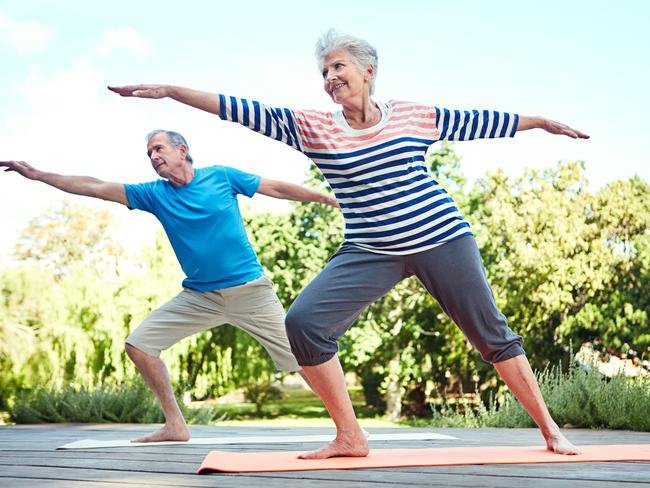
HOW TO PREVENT BOWEL CANCER
Eat healthy
*Reduce your intake of red meat and processed meat, limit your intake of alcohol, eat more fibre. Lifestyle changes can reduce your risk of bowel cancer by a third.
Stop the sugary drinks
*Drinking sugar sweetened beverages during adolescence increases the risk of developing bowel cancer particularly in females. Every 226 grams of these drinks per day raises your risk of bowel cancer by 16 per cent.
Exercise
*Do at least 30 minutes of exercise per day.
*Limit weight gain
*Limit your weight gain and any increase in your waist circumference.
*Quit smoking
Do the bowel cancer screening test
*If you take part in bowel cancer screening and have a colonoscopy you reduce your risk by 60 per cent.
Know your family’s health history
*Twenty to 30 per cent of bowel cancers are due to genetics or family history. If a parent or close relative was diagnosed with bowel cancer before age 55 then it’s recommended you begin having regular colonoscopies 10 years younger than the age the relative was diagnosed.
Get the following symptoms checked
*Blood in your poo, obvious changes in your bowel habit, weight loss you can’t explain, extreme tiredness for no reason or swelling in the abdomen.
Get an early colonoscopy
*In Australia we have a bowel screening program but Bowel Cancer Australia is concerned people who return a positive test are waiting up to 173 days for a follow up colonoscopy when ideally that should happen within 30 days.
Low dose aspirin
Recent studies have shown that daily low-dose aspirin may prevent colorectal cancer. However, there are potential harms, particularly the risk of gastrointestinal bleeding.
Antibiotics
Early evidence suggests the medicines may increase the risk of colon cancer by 49 per cent perhaps because they change the bacteria that live in your bowel.
Gut bacteria
Changes in the gut microbiome might affect cancer risk and research is underway to see if changing gut bacteria through diet or treatment could help prevent and treat cancer.
Listen to Bowel Cancer Australia executive officer Julien Wiggins below:
HOW TO PREVENT BREAST CANCER
Limit alcohol.
*Just one alcoholic drink a day can increase a woman’s chance of getting cancer. A woman faces a 13 per cent increased risk of breast cancer if she consumes 5-14 grams of alcohol a day. One standard drink contains 10 grams of alcohol.
Maintain a healthy weight.
*Fat cells make oestrogen and oestrogen can make hormone-receptor-positive breast cancers develop and grow. Extra fat around your belly may increase risk more than the same amount of extra fat around your thighs or hips. A 5 per cent increase in BMI is associated with a 12 per cent increased risk for breast cancer. Postmenopausal women who are obese have a 20-40 per cent increased risk of developing breast cancer.
Be physically active.
*Aim for 150 minutes a week of moderate aerobic activity or 75 minutes of vigorous aerobic activity weekly, plus strength training at least twice a week.
Breast-feed.
*Breast-feeding might play a role in breast cancer prevention. The longer you breast-feed, the greater the protective effect.
Limit postmenopausal hormone therapy.
*Hormonal treatments used to reduce the symptoms of menopause may increase the risk of breast cancer. Treatments that combine oestrogen and progestogen carry the greatest risk.
Vaginal oestrogens are not linked to an increased risk of breast cancer, whereas tibolone is.
The length of time you use HRT also matters. Taking it for a year or less only slightly increases breast cancer risk.
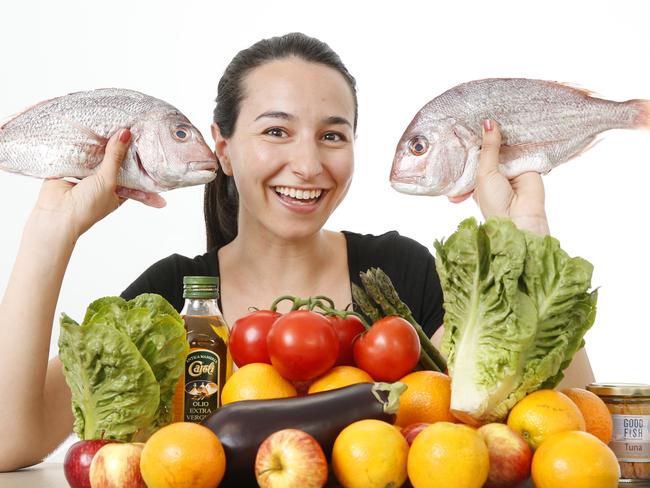
Healthy diet
*Women who eat a Mediterranean diet including fruits and vegetables, whole grains, legumes, and nuts and a small amount of fish supplemented with extra-virgin olive oil might have a reduced risk of breast cancer.
Link between birth control pills and breast cancer
*Hormonal contraception, which includes birth control pills and IUDs that release hormones, increase the risk of breast cancer slightly. One additional breast cancer could be expected for every 7,690 women who use hormonal contraception for at least one year, a study showed.
When you stop taking the pill your breast cancer risk stops increasing. About 10 years after stopping, a person’s risk is no longer affected.
The contraceptive pill can decrease the risk of ovarian and womb cancer.
Breastscreen
*If you are aged between 50 and 74 make sure you have a free mammogram every two years through Breastscreen.
Genetic testing
*If numerous family members have had breast cancer consider getting a genetic test to see if they are carriers of genes that predispose them and you to breast cancer. You may wish to consider preventive surgery.
Listen to National Breast Cancer Foundation research director Sam Oakes below:
HOW TO PREVENT PROSTATE CANCER
Prostate cancer is a disease of aging. As you get older, your chances of developing it increase.
Higher risk if close relatives have it. If close male relatives like your father, brother had prostate cancer, you are more likely to get it so check your prostate health from age 40.
If you are aged over 50
Talk to you GP about your prostate health don’t wait for symptoms
Maintain healthy weight Cut down on the amount of unhealthy fat and animal protein in your diet because they can cause DNA damage and lead to cancer.
Risk reducing vegetables Eat leafy greens and cooked tomatoes which contain lycopene, can slow the growth of prostate cancer cells. Cruciferous vegetables like broccoli and cauliflower contain a compound called sulforaphane that may protect against cancer.
Soy and Green tea Studies show eating soy may lower PSA levels, and green tea may help men who are at high risk for prostate cancer lower their risk.
Ditch the barbecue Charred meat, from frying or grilling at high temperatures, may produce a chemical compound that leads to cancer.
Quit smoking and drink in moderation.
Regular sexual activity Two studies appear to show men who have regular sexual release were up to two-thirds less likely to be diagnosed with prostate cancer because it clears the body of toxins that cause inflammation.
Drugs Prostate cancer feeds on testosterone and DHT (dihydrotestosterone) studies show a drug called finasteride can reduce DHT levels and reduced the risk of prostate cancer by 25 per cent.
Listen to Prostate Cancer Foundation of Australia CEO Jeff Dunn below:
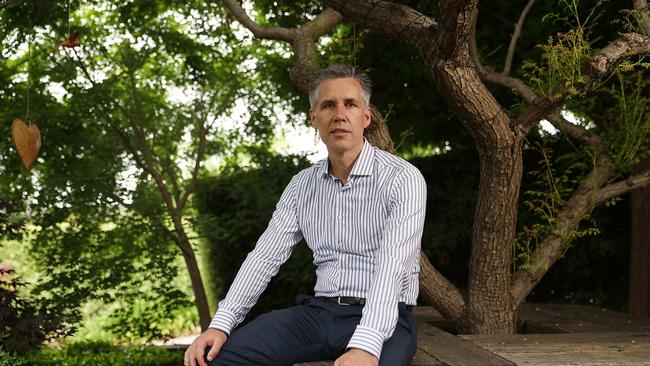
‘I WAS LUCKY IT HADN’T SPREAD’
Father of two Danny Hansen had to change doctors to find one who would order him a PSA tests after his dad was diagnosed with prostate cancer.
Tests showed the IT consultants PSA levels had risen from 2.5 in 2017 to 3.8 in 2021 and he was concerned when his doctors did not urge him to seek further testing.
“When I read about this technology that takes your family history and your test results and pumps it through an artificial intelligence engine and it does a matching against a database of 250,000 men that sounded like an awesome idea to me and that’s why I signed up to it,” he said.
“They identified me as high risk and you know, put me through another series of tests to do the diagnosis,” he said.
Diagnosed on the first of June he had a radical prostatectomy two months later.
“I was very lucky that it hadn’t spread anywhere else in my body,” he said.
“Hopefully the prognosis from here is that I’m all clear of cancer now, it’s just a watching brief for a few years,” he said.
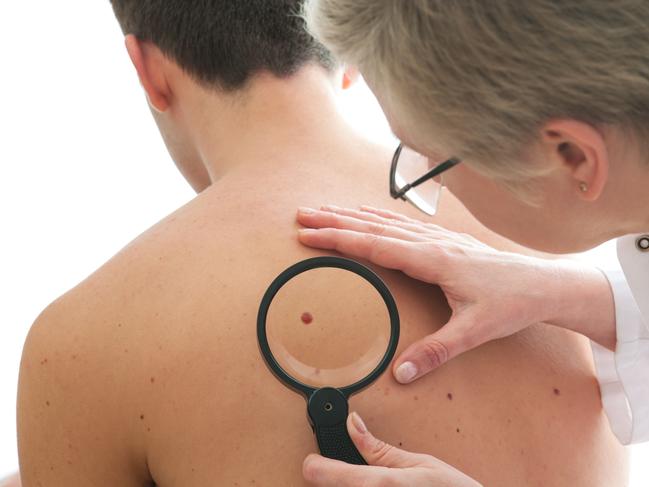
HOW TO PREVENT MELANOMA
Limit your sun exposure. Overexposure to ultraviolet (UV) light causes 95 per cent of melanoma.
Wear protective clothing When outside wear a shirt, 50 plus sunscreen, a broad brimmed hat and sunglasses.
Use enough sunscreen Typically people only use 25-50 per cent of the amount of sunscreen needed to protect themselves. It must be waterproof if you are swimming and needs to be re-applied every few hours.
Do not use tanning beds Melanoma Institute Australia research showed tanning beds increased the risk of melanoma particularly in teenagers and young adults and they are now banned commercially in Australia.
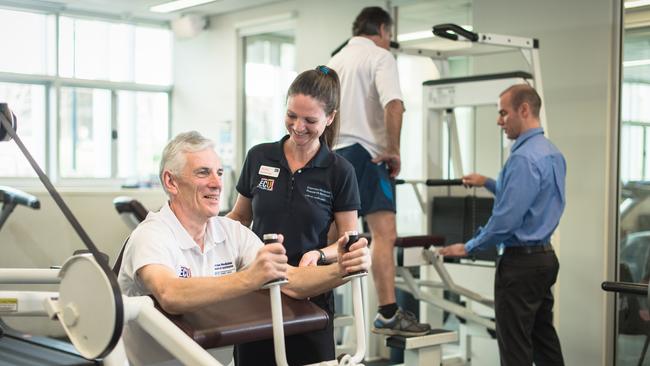
HOW TO PREVENT LUNG CANCER
Quit smoking, quit smoking, quit smoking.
Smoking causes eight in ten cases of lung cancer and also contributes to a range of other cancers.
Australia’s 45 and Up Study found that tobacco smoking significantly increased the risk of 12 types of cancer and that 1-in-7 current smokers will get lung cancer in their lifetime. This compares to the one per cent risk of developing lung cancer if you have never smoked.
A New England Journal of Medicine study found if you quit before the age of 40 you reduced your chance of dying prematurely from a smoking-related disease by 90 percent, and quitting by age 54 reduces the risk by two thirds.
Maintaining your weight and eat healthy.
There is emerging evidence of a connection between your gut biome and lung cancer.
Have access to clean air Some lung cancers are caused by exposure to pollutants in the air.
Protect yourself from industrial chemicals and dust Around 800 Australians a year develop mesothelioma as a result of exposure to asbestos dust. Its estimated 230 Australians a year develop lung cancer from silica dust produced when cutting engineered kitchen benchtops. Make sure your workplace is safe and you use correct personal protective equipment.
Unknown Sadly the cause of a small number of lung cancers is unknown.
Listen to Lung Foundation Australia CEO Mark Brooke below:
EXERCISE
The power of exercise in cancer treatment and prevention is phenomenal with new research showing it can extend survival by 50 per cent which is equivalent to chemotherapy.
Professor Rob Newton from Edith Cowan University in WA has proven that exercise causes muscles to secrete anti-cancer proteins called cytokines including interleukin 6 into the blood.
These cytokines work closely with the immune system, and they signal the immune cells to attack and destroy the cancer cells.
“Exercise will not cure cancer. Yes, it will slow the rate of growth of cancer and it will improve your quality of life,” he said.
“It is probably as important as your chemotherapy treatment. It’s a critical component of your overall management of your cancer. And you need to do it,” he said.
One study looking at people who do and don’t get cancer found 75 minutes of vigorous activity or 150 minutes per week of moderate exercise will reduce your risk of getting many cancers.
“For cancer of the colon it’s about a 50 per cent reduction, a 20 per cent reduction in risk for lung cancer. Prostate cancer is about 30 to 40 per cent reduction,” he said.
Women with breast cancer who are physically active for 150 minutes per week have about a 50 per cent greater survival rate, Newton said.
“That’s huge, that’s equivalent to many chemotherapy treatments,” he said.
In one of Newton’s trials men with prostate cancer were put on a 12 week exercise program and when their blood serum was poured over living prostate cancer cells in a laboratory dish “we saw about a 22 per cent reduction rate of growth”.
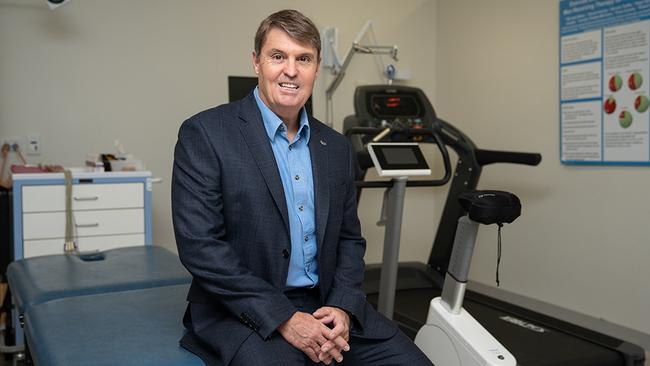
In another landmark study he showed a very specific exercise prescription involving impact loading like skipping and hopping, bounding could prevent the bone loss that occurs in men with prostate cancer when they’re on testosterone suppression therapy.
He is also working with cancer patients to improve their fitness before they have their surgery.
“If you exercise it supresses the rate of growth of cancer cells and reduces the tendency for those cancer cells to travel to other parts of the body to metastasize,” he said.
Newton says cancer patients should work with an exercise physiologist to determine the best type of exercise for them.
In general the recommendation is a combination of cardio exercises like swimming, brisk walking, cycling with two or more resistance training sessions per week.
“The resistance training is essential because they have to maintain or increase muscle mass and only resistance training, strength training, weight training will do that,” he said.
Further work is needed to determine exactly how exercise has this anti- cancer effect and what level on intensity is required and for how long.
“Once we know we can work on pharmaceutical drugs, we can say this is how the body manages its cancer internally, can we use drugs to facilitate that effect?” he said.
What we do know is “if a cancer patient is sedentary, they’re really compromising their ability to survive,” he said.
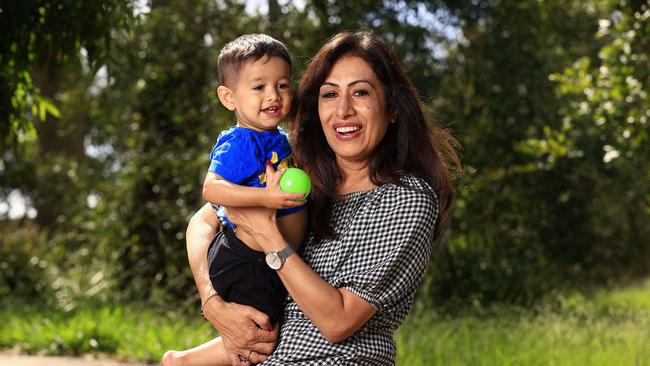
‘IF SOMETHING ISN’T RIGHT, PUSH FOR ANSWERS’
In 2018 on the night of her daughter-in-law’s baby shower Sheila Kumar discovered a lump on the left side of her breast but was relieved when a mammogram came back clear.
Two months later the lump had not disappeared and the 55 year old had an ultrasound that found something suspicious.
After a mastectomy she was prescribed chemotherapy and radiation and she lost not only her hair, eyebrows, eyelashes and nails, but the feeling in her fingers and toes as the treatment started to damage her peripheral nerves.
The grandmother of four, was forced to stop treatment as she was too sick to continue.
With the help of her family she hosted a high tea fundraiser to spread awareness of breast cancer within her community raising $13,000 which was donated to breast cancer research and awareness at National Breast Cancer Foundation.
There is a high risk of her cancer returning so she is now two years into a decade of hormonal treatment, to prevent that.
Her advice to other women is to not to let the fear of a diagnosis get in the way of getting screened, and she urges women to go to their GP if they notice any changes.
“Early detection provides the best chance of successful breast cancer treatment – so if you feel something isn’t right, continue to push for answers because you know your body best,” she said.
Originally published as How to prevent cancer naturally: Experts reveal changes you can make in diet, exercise, lifestyle





